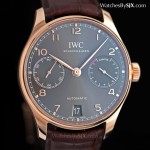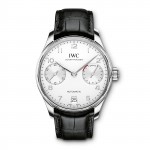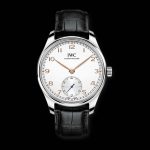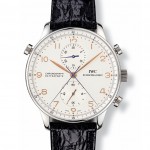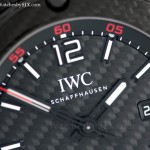Up Close: IWC Portugieser “7-Days” Automatic 42 Ref. 5017
Thoughtful improvements for a better watch.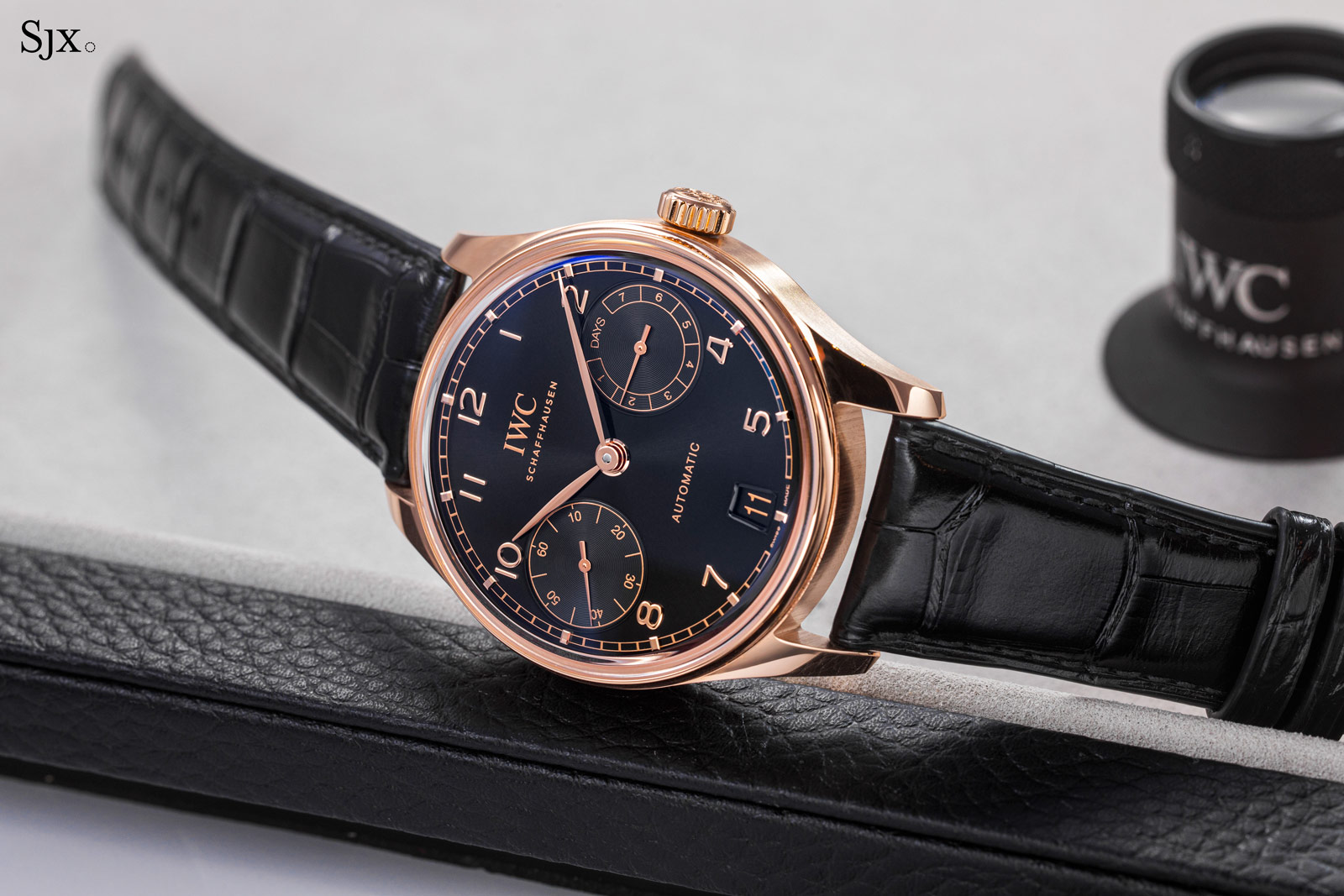
IWC recently facelifted the entire Portugieser line, and along with it the flagship Portugieser Automatic 42 “7 Days”, now in its fourth generation. Though the tweaks are cosmetic but significant, with an attention to detail that results in clear aesthetic enhancements. Compared to the earlier generation ref. 5007, the new Portugieser has a sharper, more refined appearance, while also feeling slightly more compact.
Initial thoughts
Though the overall design is mostly unchanged over the earlier generation, Portugieser 7-Days immediately looks and feels different in the hand. It looks a little bit shinier, slightly more polished, as if more effort was put into making it look like an expensive watch.
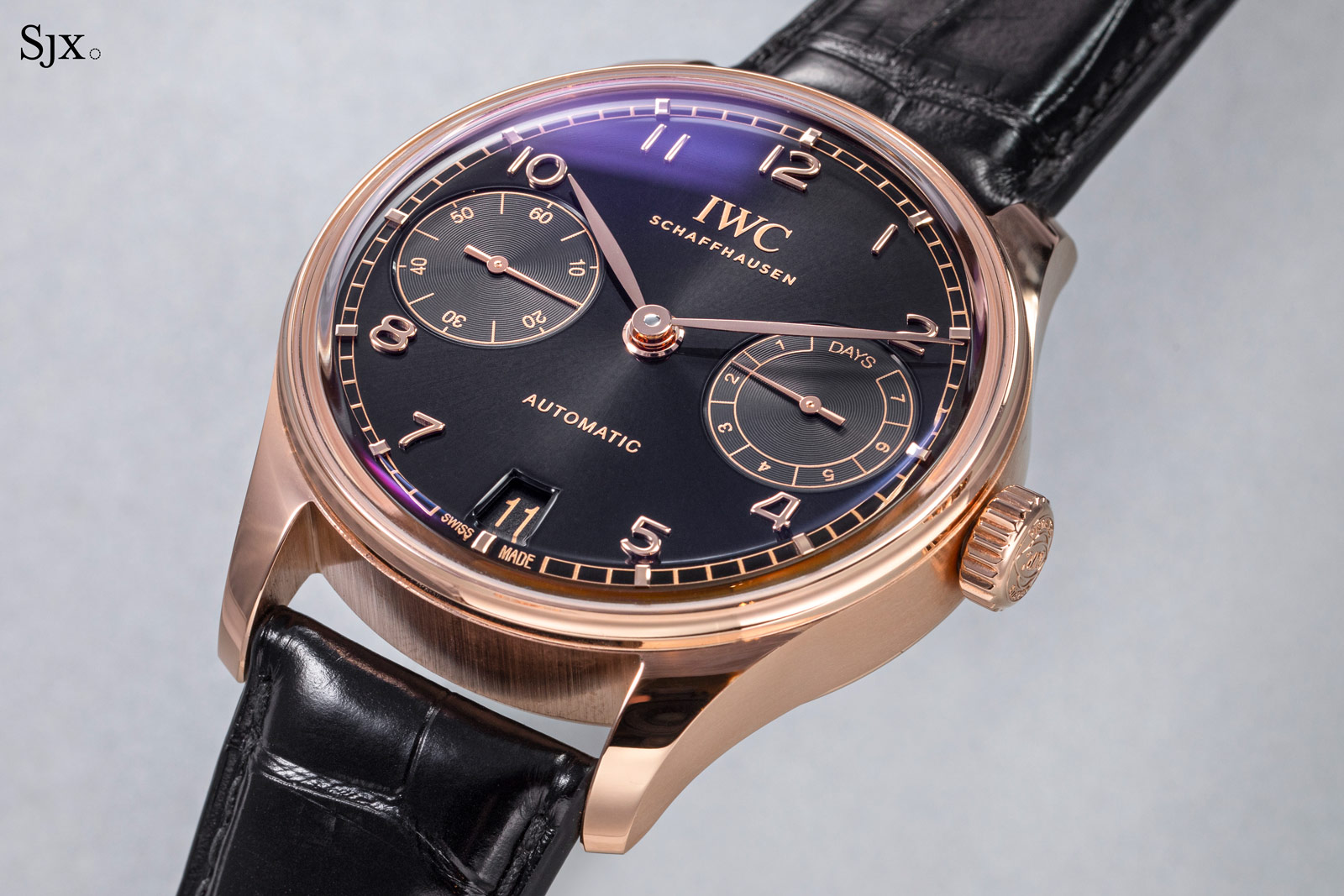
The appearance is subtly different yet instantly obvious, and is the cumulative result of small improvements to the case, dial, and crystal. The improvements are particularly evident compared to the first generation Portugieser ref. 5000 launched in 2000, which feels almost like a vintage watch from another era. The improvements are incremental and hardly imaginative, but they are well done.
Granted not everyone might like the polished new look. The lacquered dial, for instance, has an obvious glossy finish. But most of the improvements are more subtle, particularly on the case that now has a slimmer profile and improved finishing.
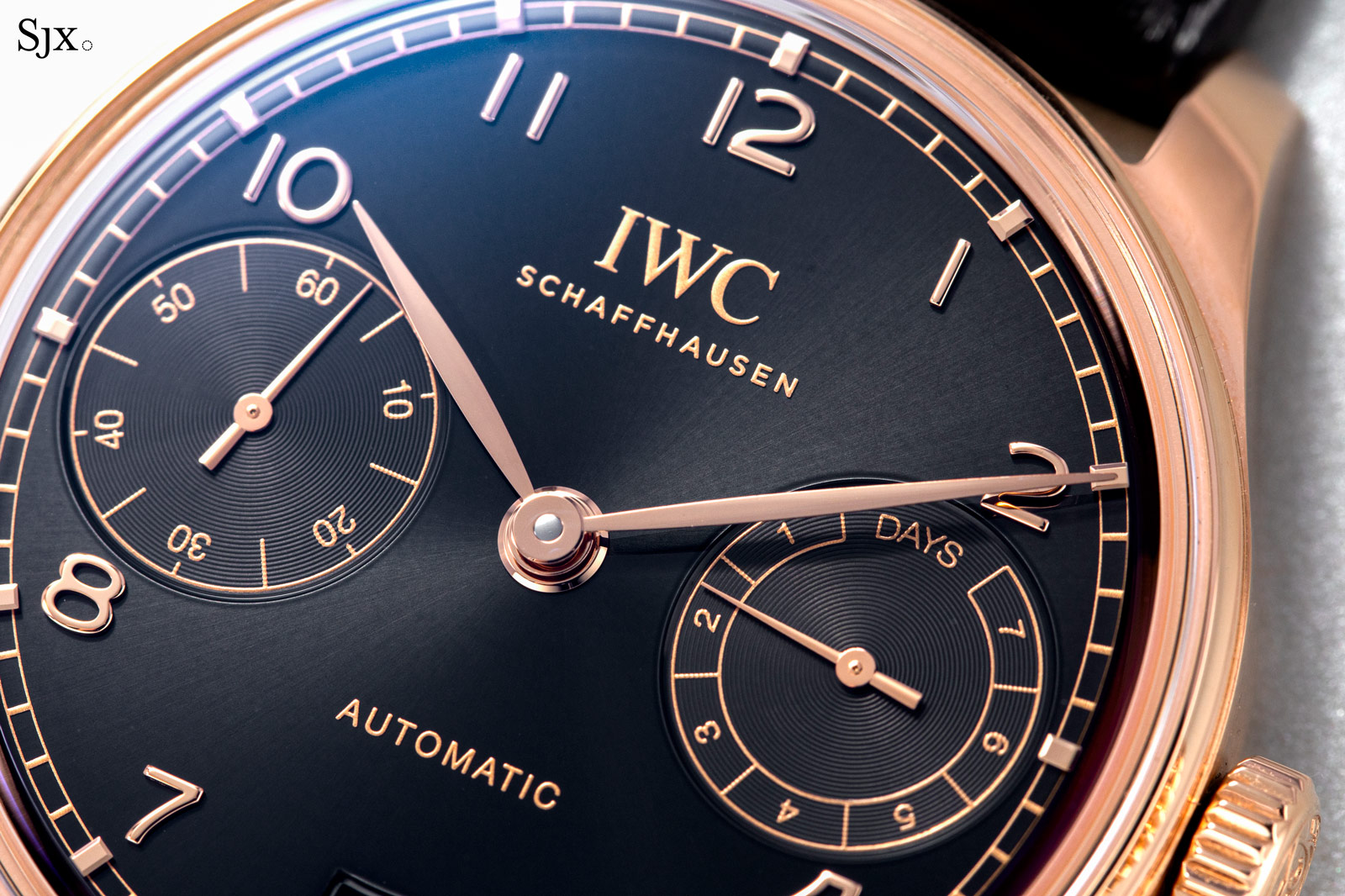
Importantly, the revamped Portugieser is priced almost exactly the same as its predecessor ref. 5007 (the increase is a few hundred dollars). It is arguably a better value proposition than the earlier generation, because the level of execution of the external components is superior.
That said, I do wish IWC had done something bigger. The original Portugieser 7-Days was a landmark at its launch 24 years ago, and long enough time has passed that the concept should be radically reimagined.
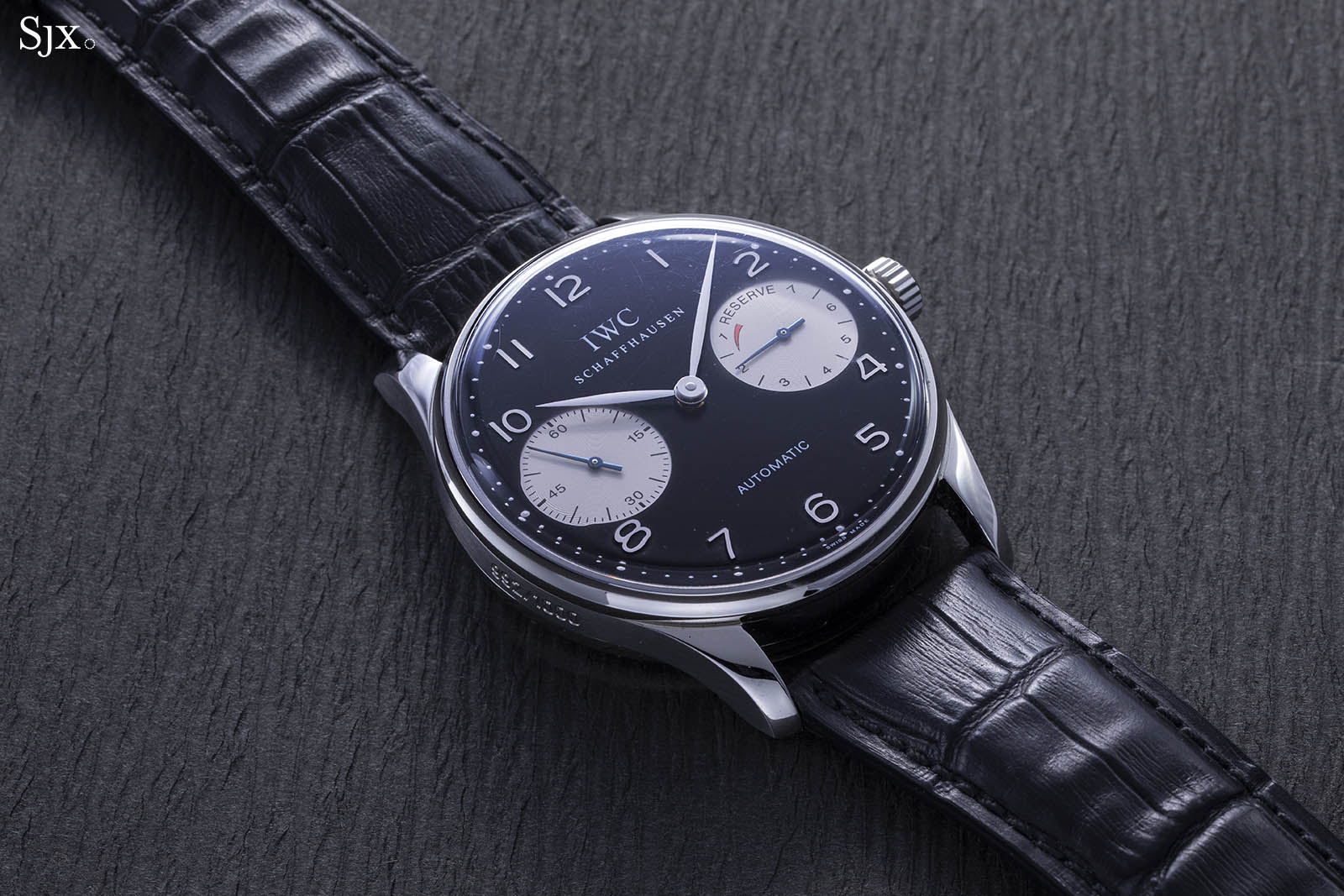
The Portugieser 7-Days circa 2000 that was the first-ever automatic watch with week-long power reserve
Extending the power reserve to 10 days while slimming the movement, for instance, would be a a major step forward. That would naturally come with a substantially higher price tag, but a pricier watch would be acceptable if it was substantially superior and still maintained a healthy price-to-performance ratio.
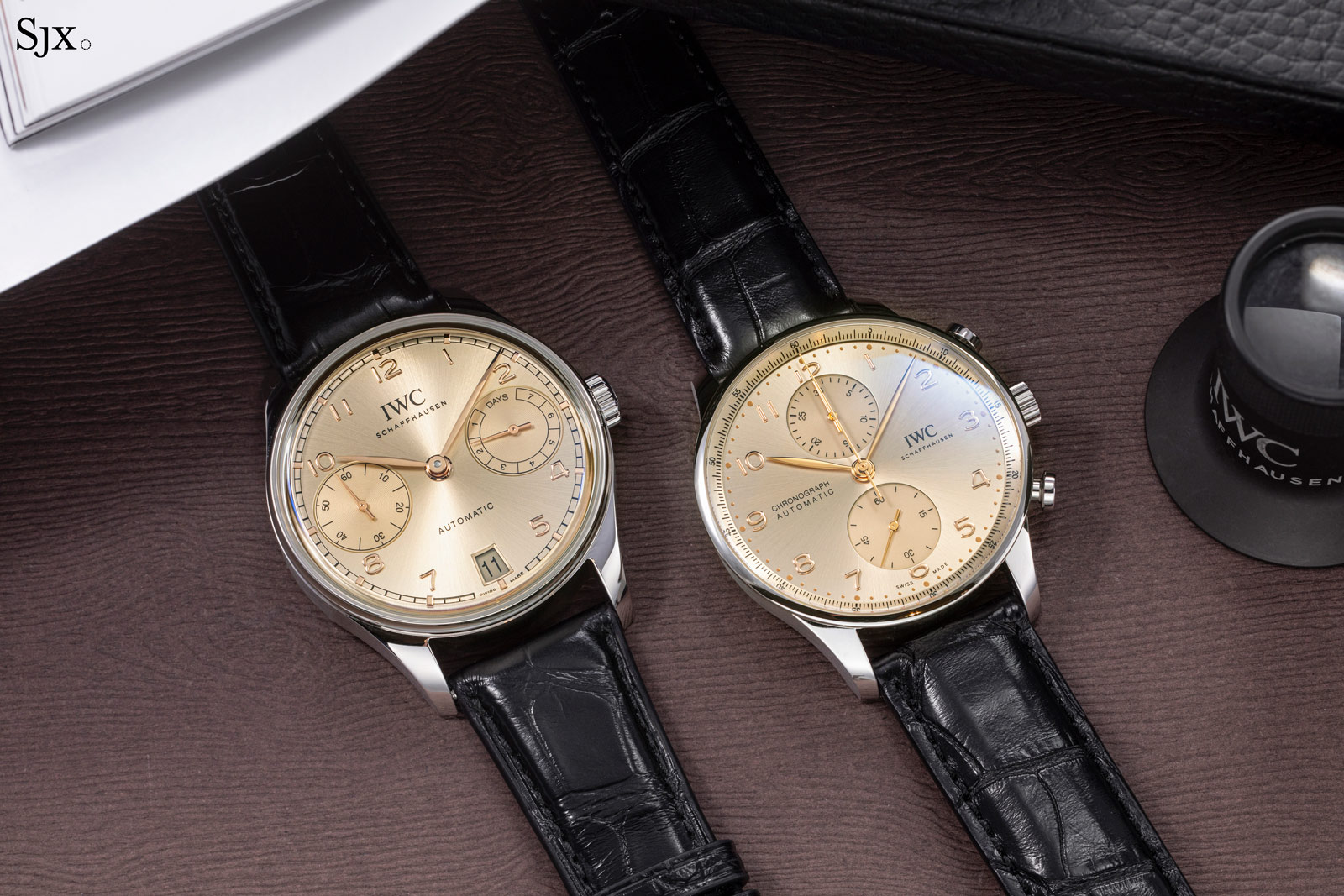
The freshly facelifted Portugieser Automatic 42 and Portugieser Chronograph
Nips and tucks
The new Portugieser is offered with a range of dials, including the traditional silver with gilt numerals, along with fresh colours like the champagne shade labelled “Dune”. All of them, however, have the same finish lacquered finish that produces a lustrous surface with visible depth. This gives the new dials a more polished look that easily catches the eye – credit also goes to IWC’s dial supplier for the work.
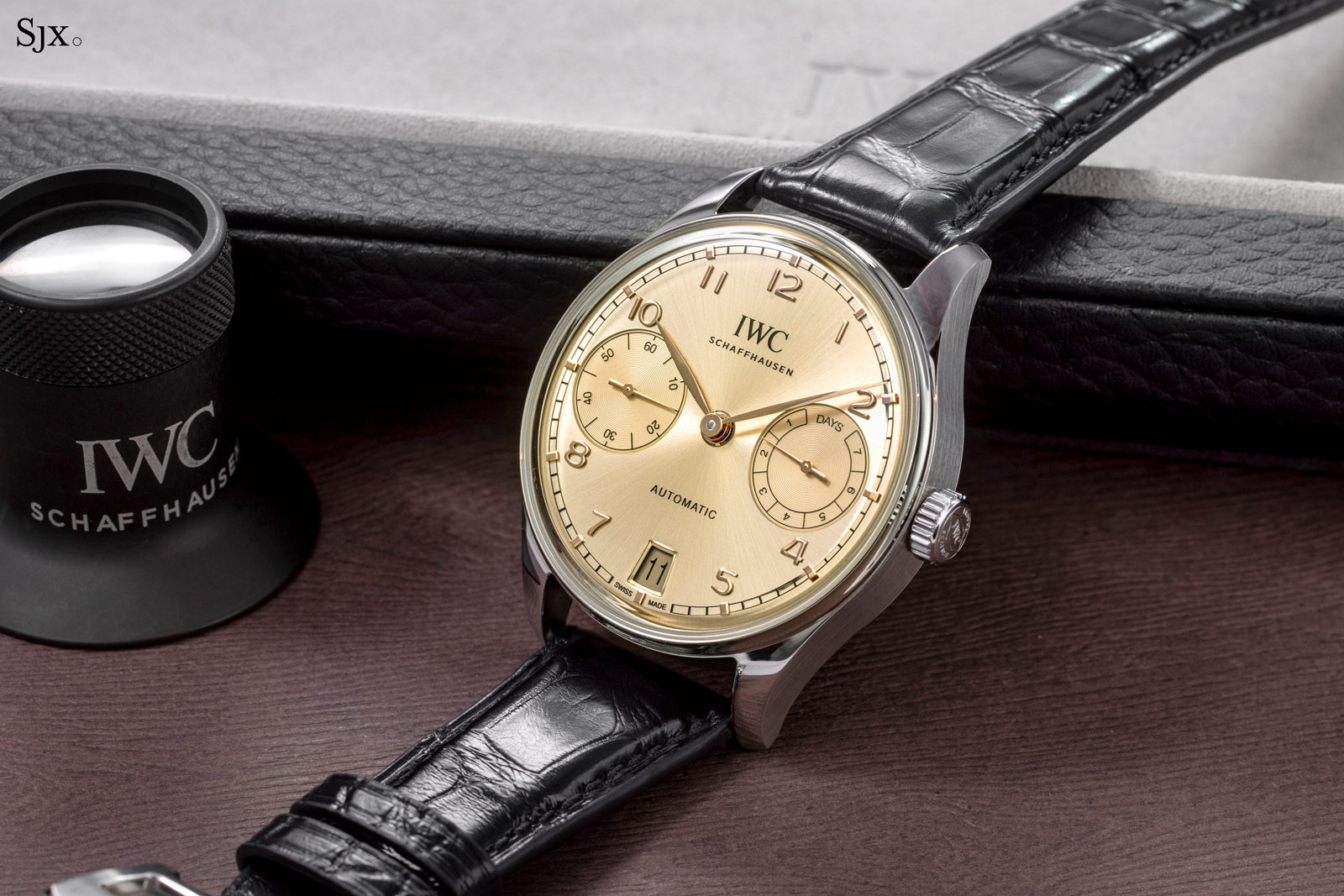
The dial starts out as a standard brass blank that’s finished with radial sun-ray brushing before galvanic treatment that creates the metallic colour – this is pretty much the industry standard for dial making.
But instead of a single or maybe double layer of clear lacquer, the dial is covered with 15 layers of lacquer. The lacquer is then ground down so the dial is the right thinness, then lapped to create a smooth surface with a pronounced glassy finish.
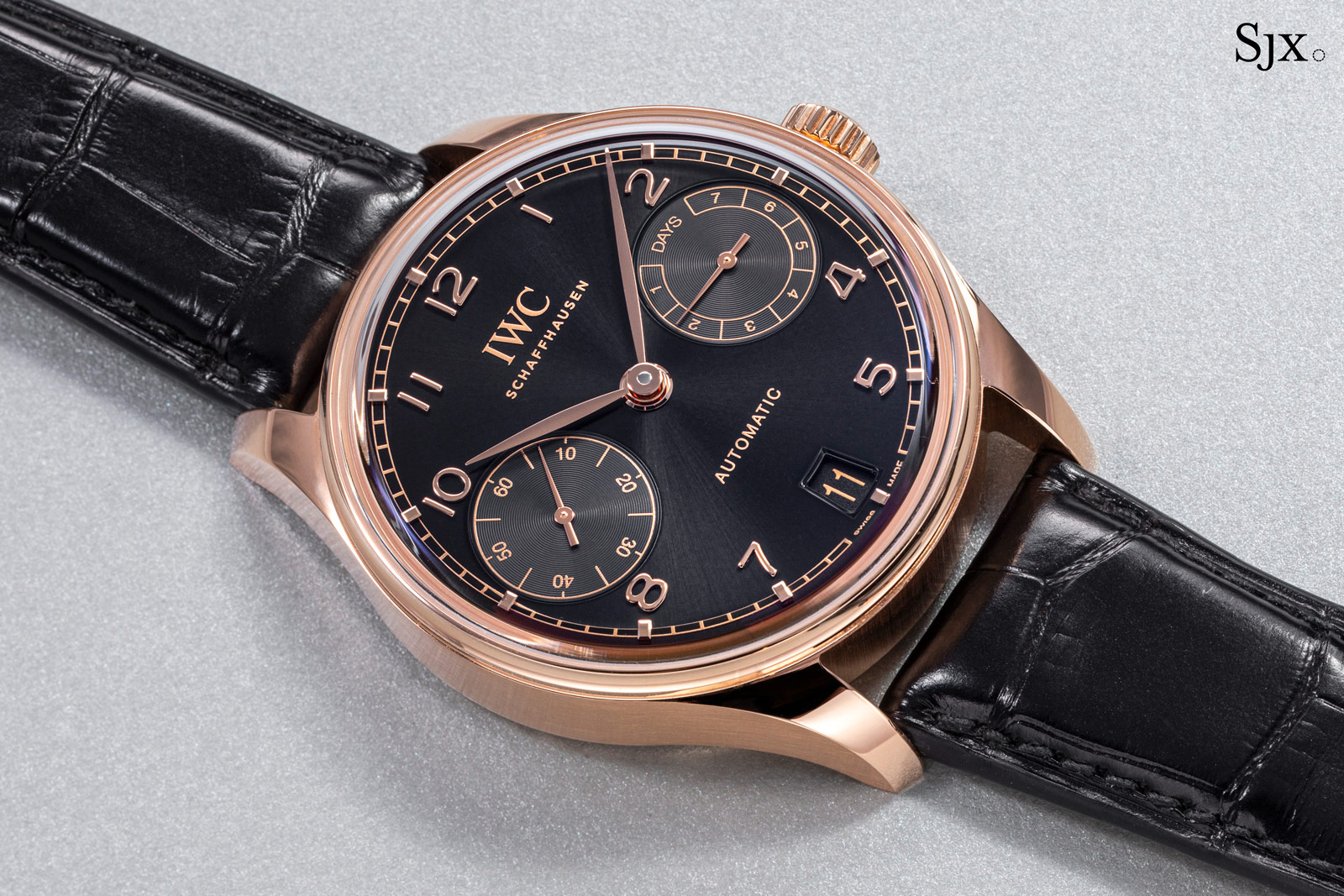
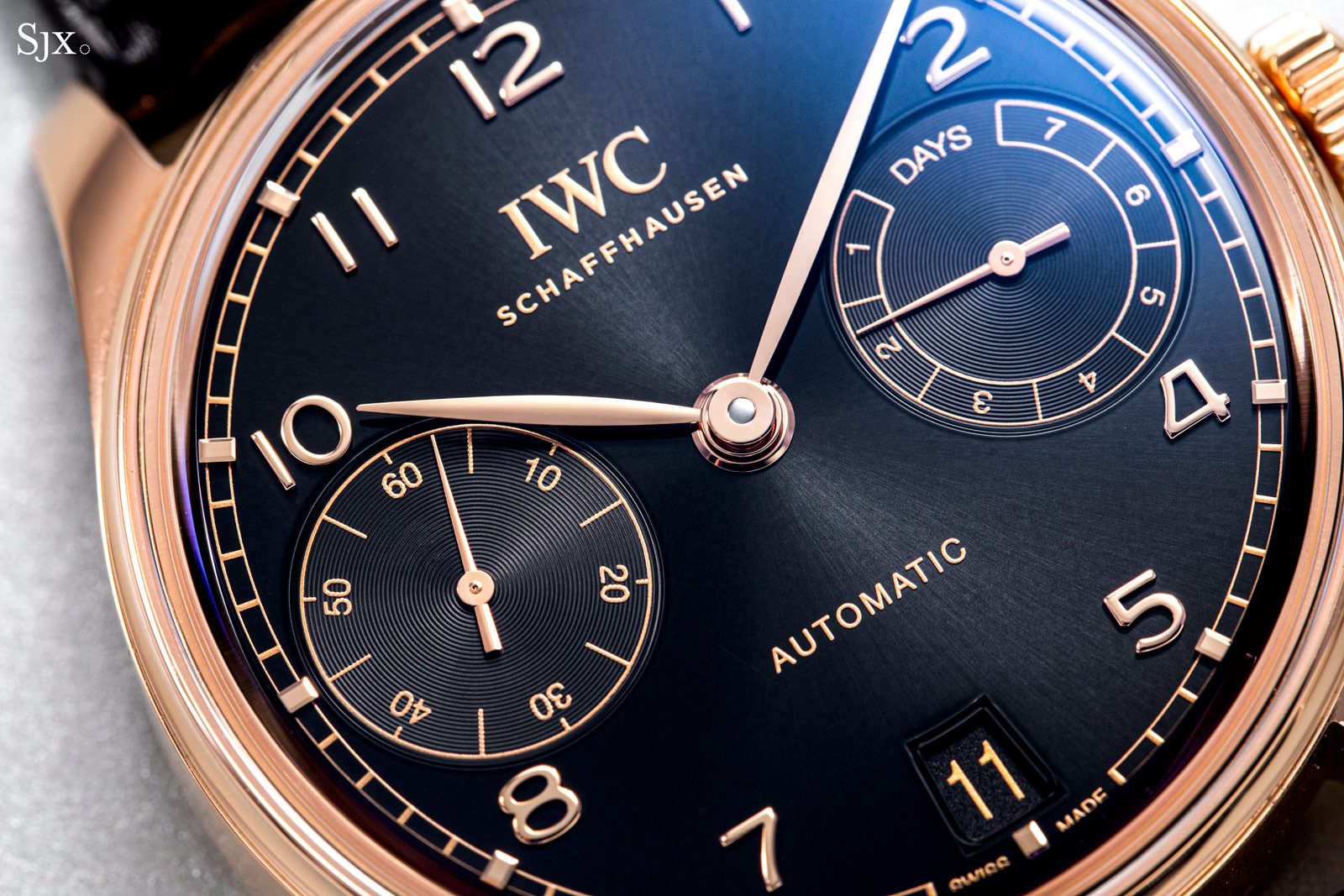
At the same time, the sub-dials are milled, through the lacquer and the brass base, and then stamped. As a result, the two registers are considerably recessed.
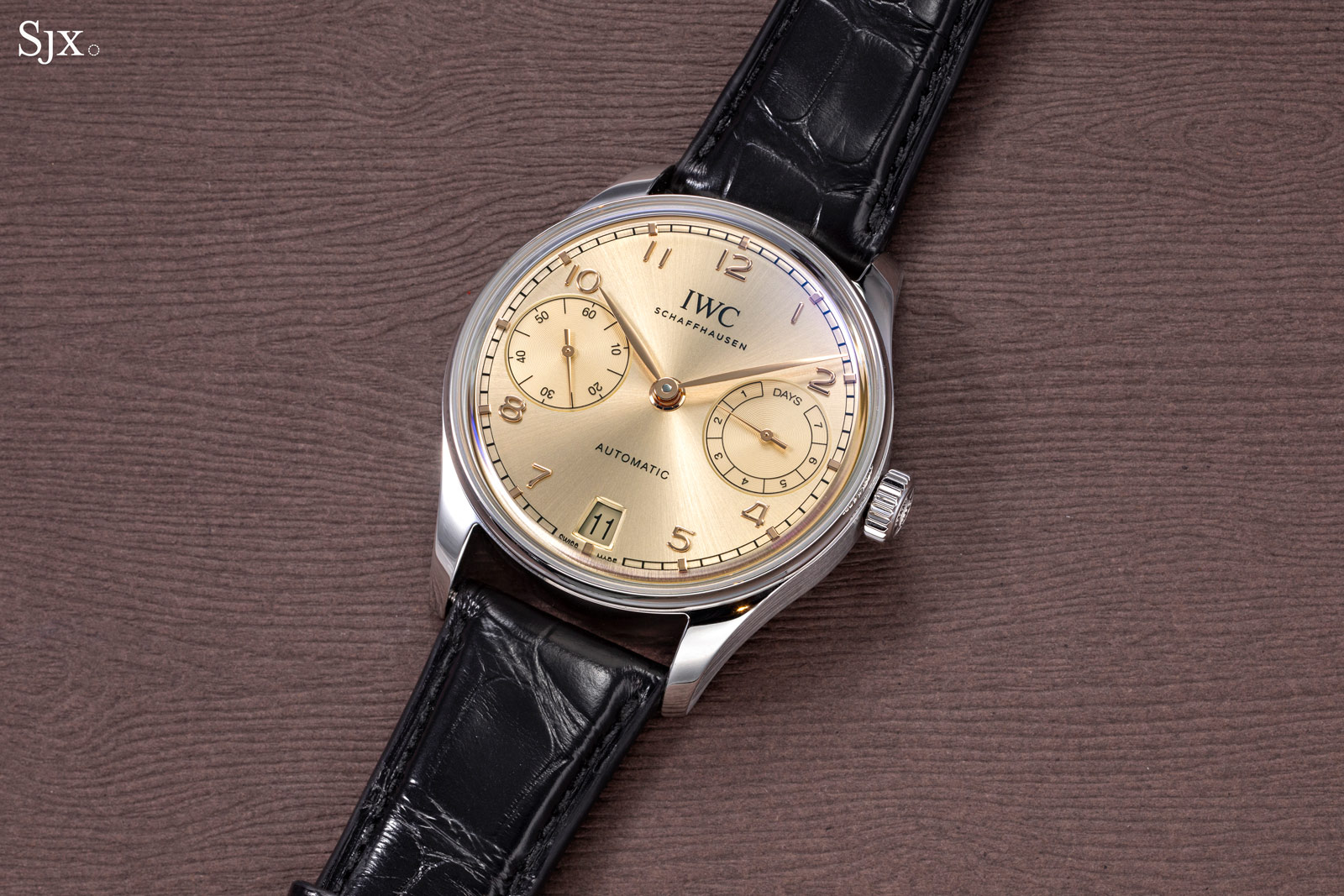
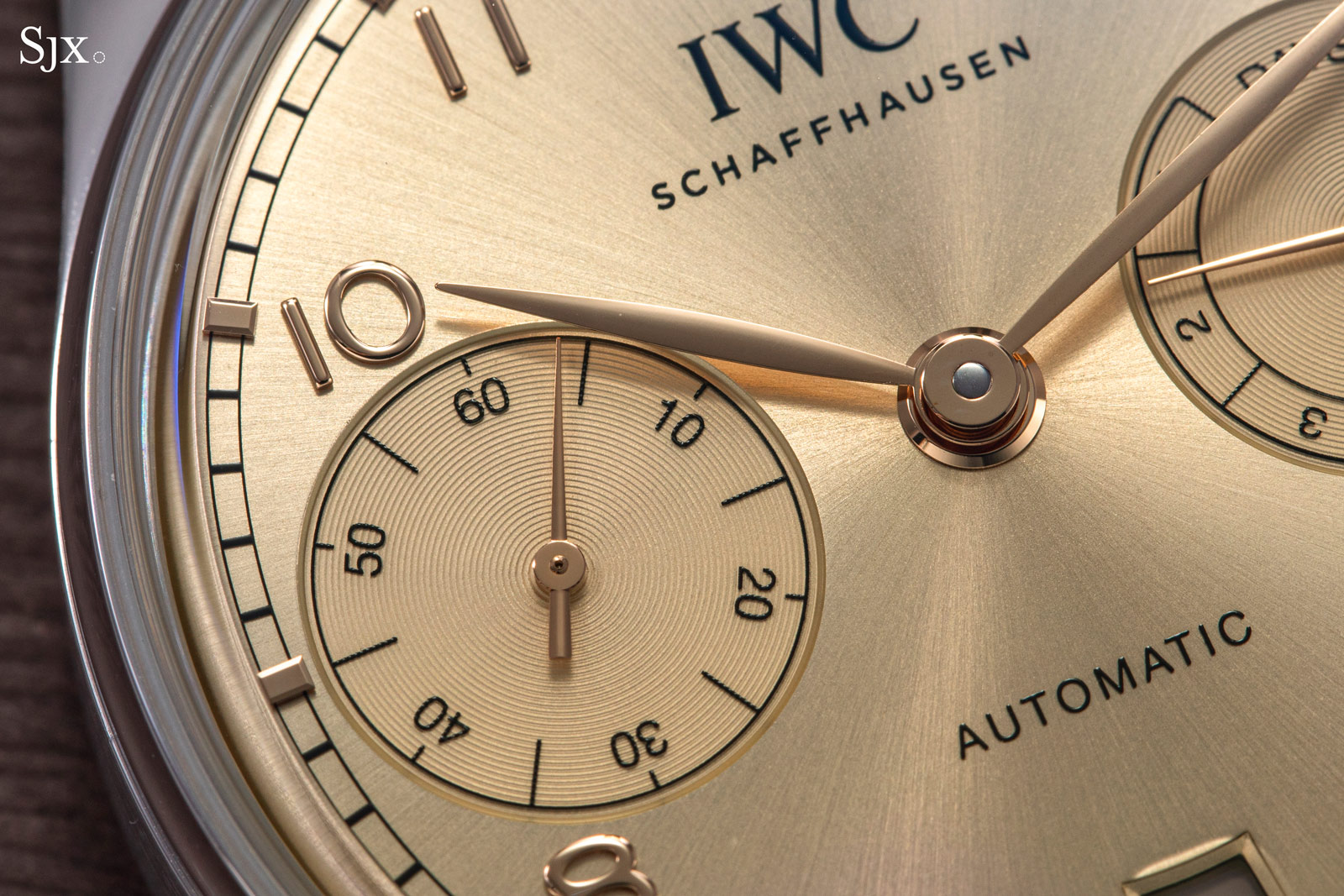
The printing as well as appliqués are then done on top of the lacquered surface, so they appear to float. This effect is subtle at a distance but adds depth to the dial up close. This is especially apparent with the large IWC logo below 12 o’clock.
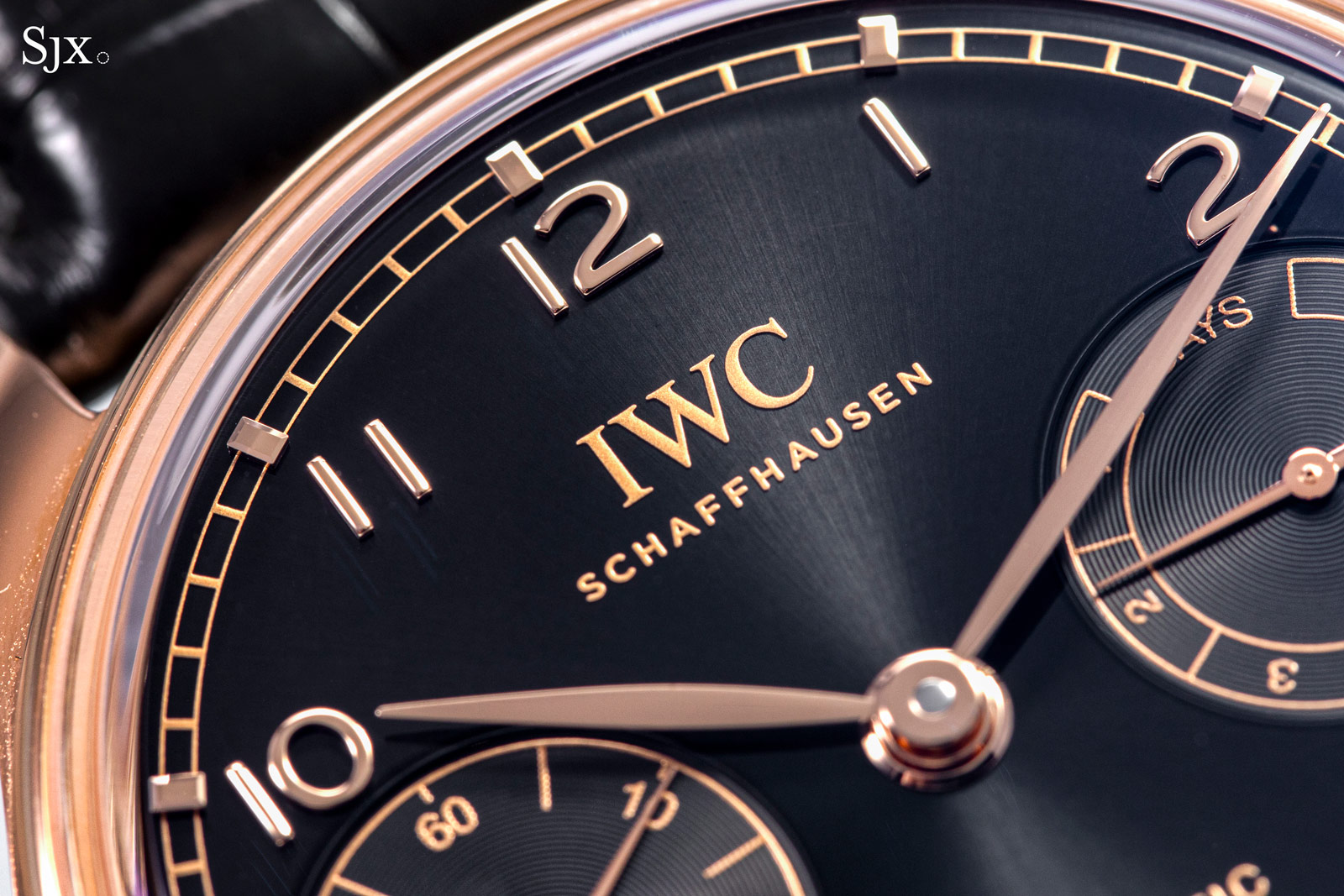
But the thickness of the clear lacquer layer is best illustrated by the date window, which is ringed by an obvious lacquer border. The border isn’t obvious at a distance and on the dark dials it’s practically invisible, but under magnification it looks slightly untidy. This is inevitable, however, due to the vicoscity of lacquer and the 90-degree corners of the date window.
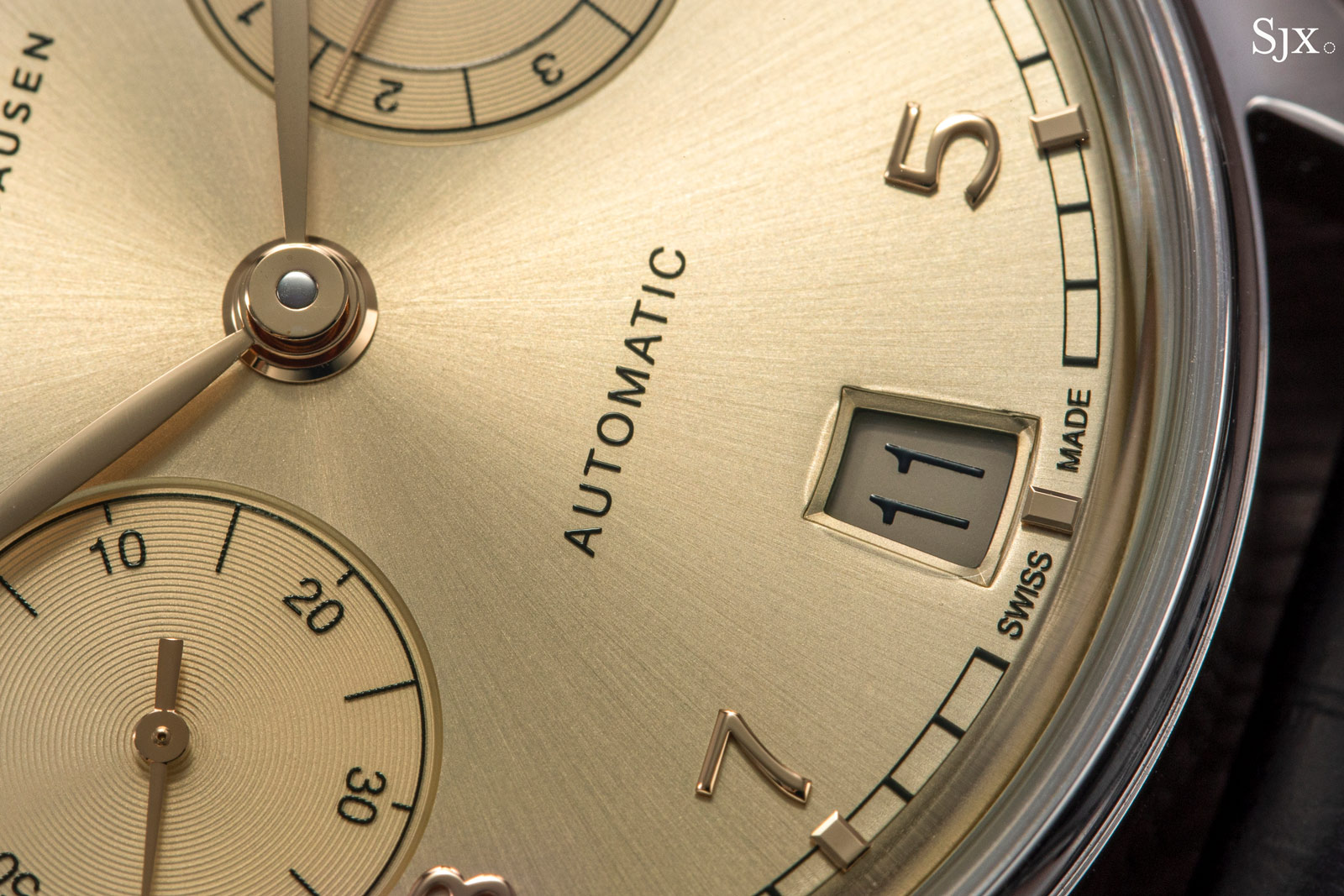
Like the dial, the case retains the same design as before but has been reworked to be slimmer, even though the movement inside remains the same. The impact of this is quite substantial, as the watch looks and feels thinner on the wrist. It also has a bit more of a vintage aspect with the highly domed crystal (though the glossy dial finish instantly gives it away as a modern watch).
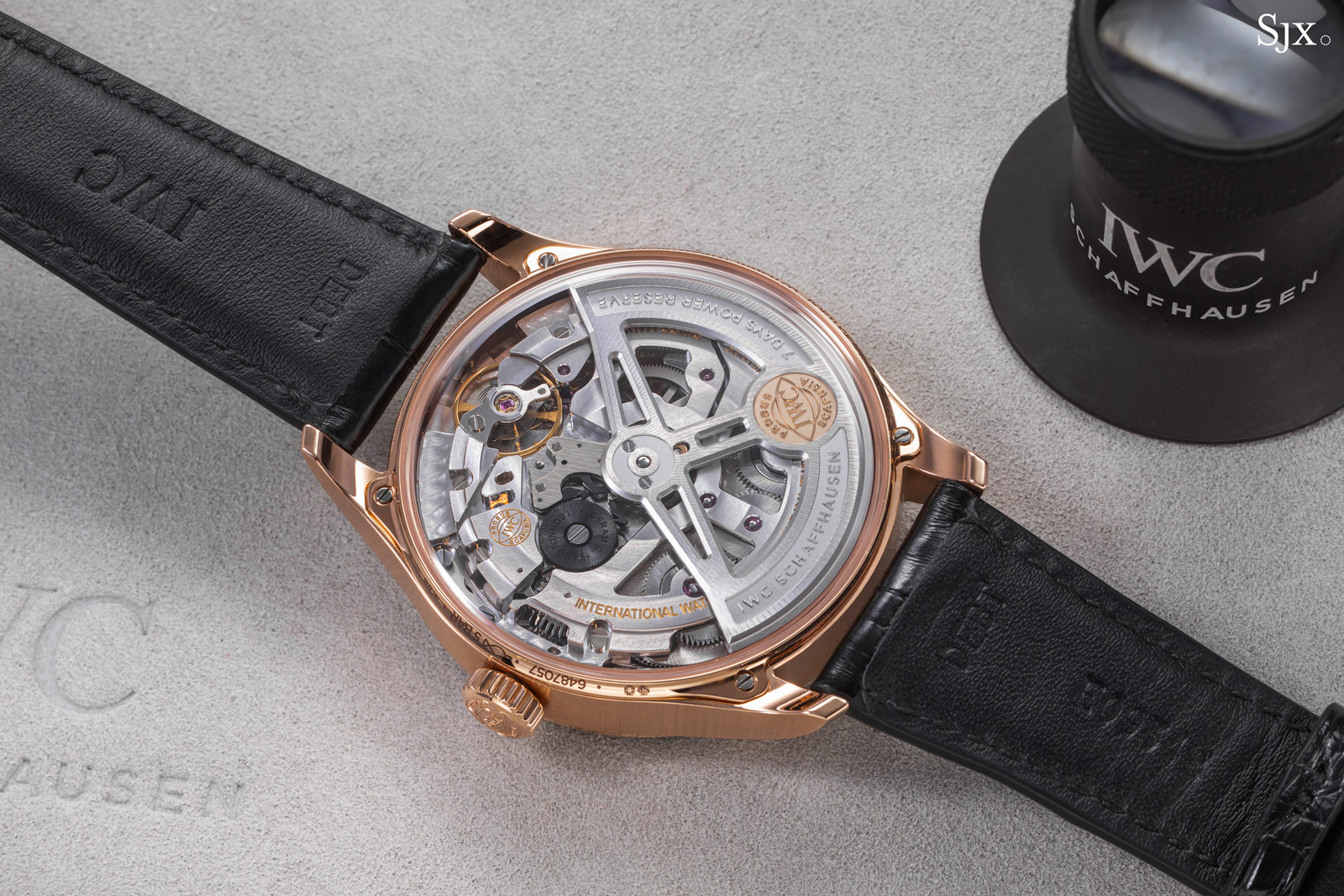
The case middle remains the same height, but the case back and bezel have been thinned. At the same time, the sapphire crystals on the front and back are more domed than before. As a result, the case is one millimetre slimmer but can still accommodate the same thick cal. 52011.
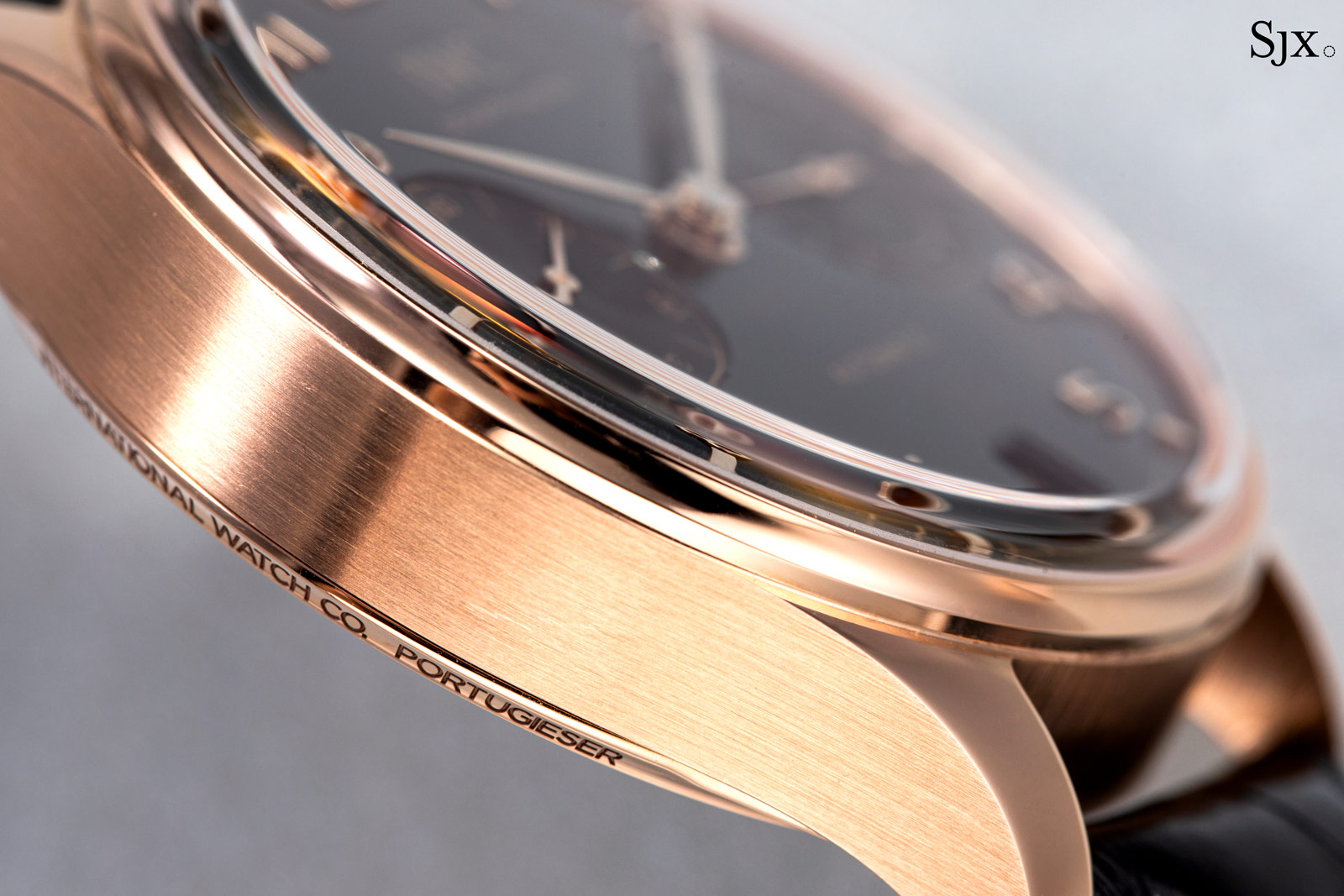
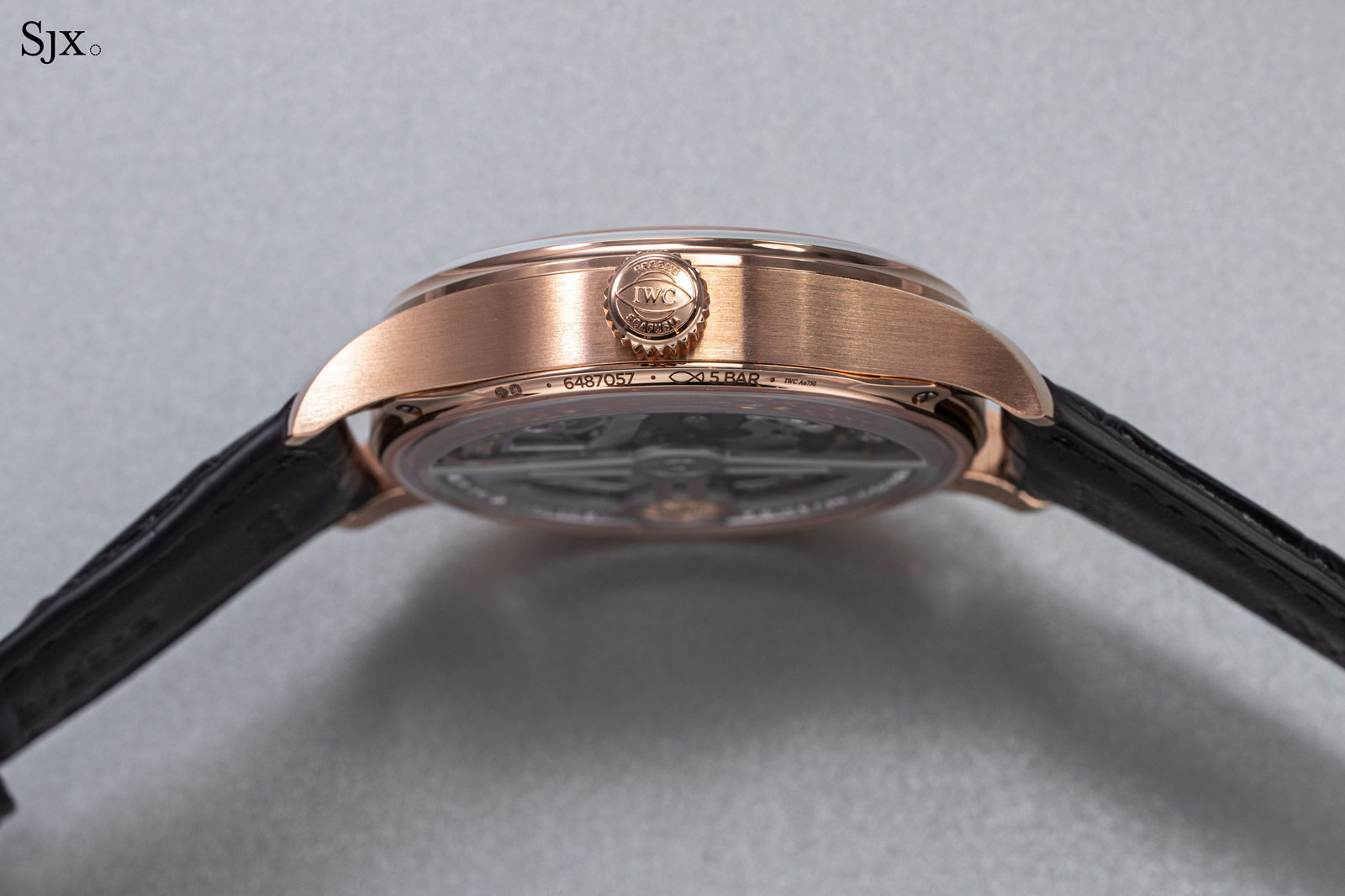
A side effect of the reworked case is that it is lighter, because the bezel and back are flatter, while the case middle has been thinned as well. This doesn’t mean anything in terms of the user experience, though in the gold models it implies less gold is used for the case so the material cost of a gold case is less now than compared to the earlier generation – which means it costs less to produce.
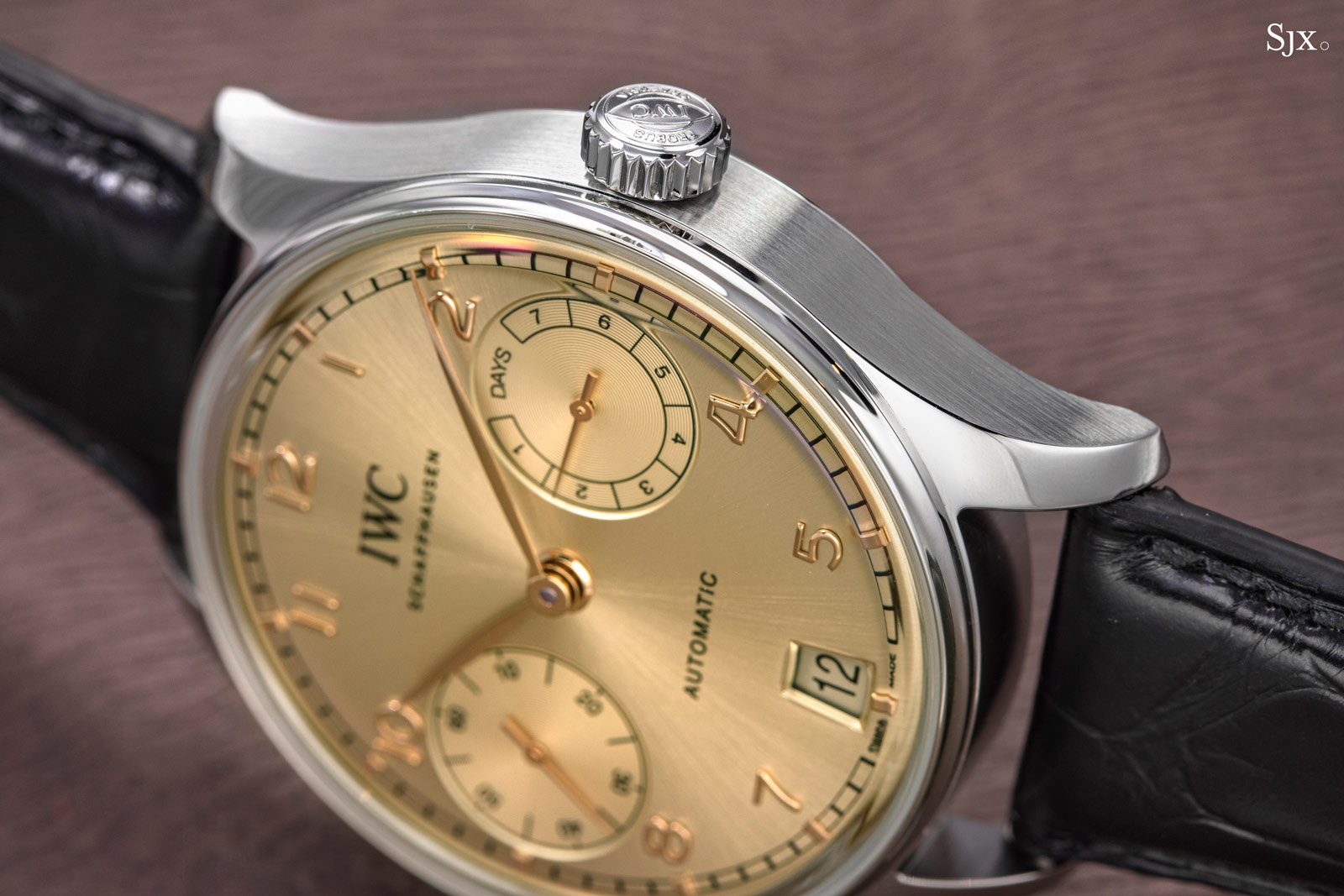
The weeklong movement
On display through the reworked case back is the cal. 52011. It’s part of the 52000 family, the second-generation seven-day automatic after the original cal. 5000/5001/5101.
Though it shares the same power reserve and trademark Pellaton winding mechanism, 52000 family was constructed from the ground up as a new calibre, and not based on its predecessor. The original cal. 5000 was an ambitious movement that was perhaps over-engineered, yet also inefficient and flawed in several respects, including a single mainspring and overly heavy rotor.
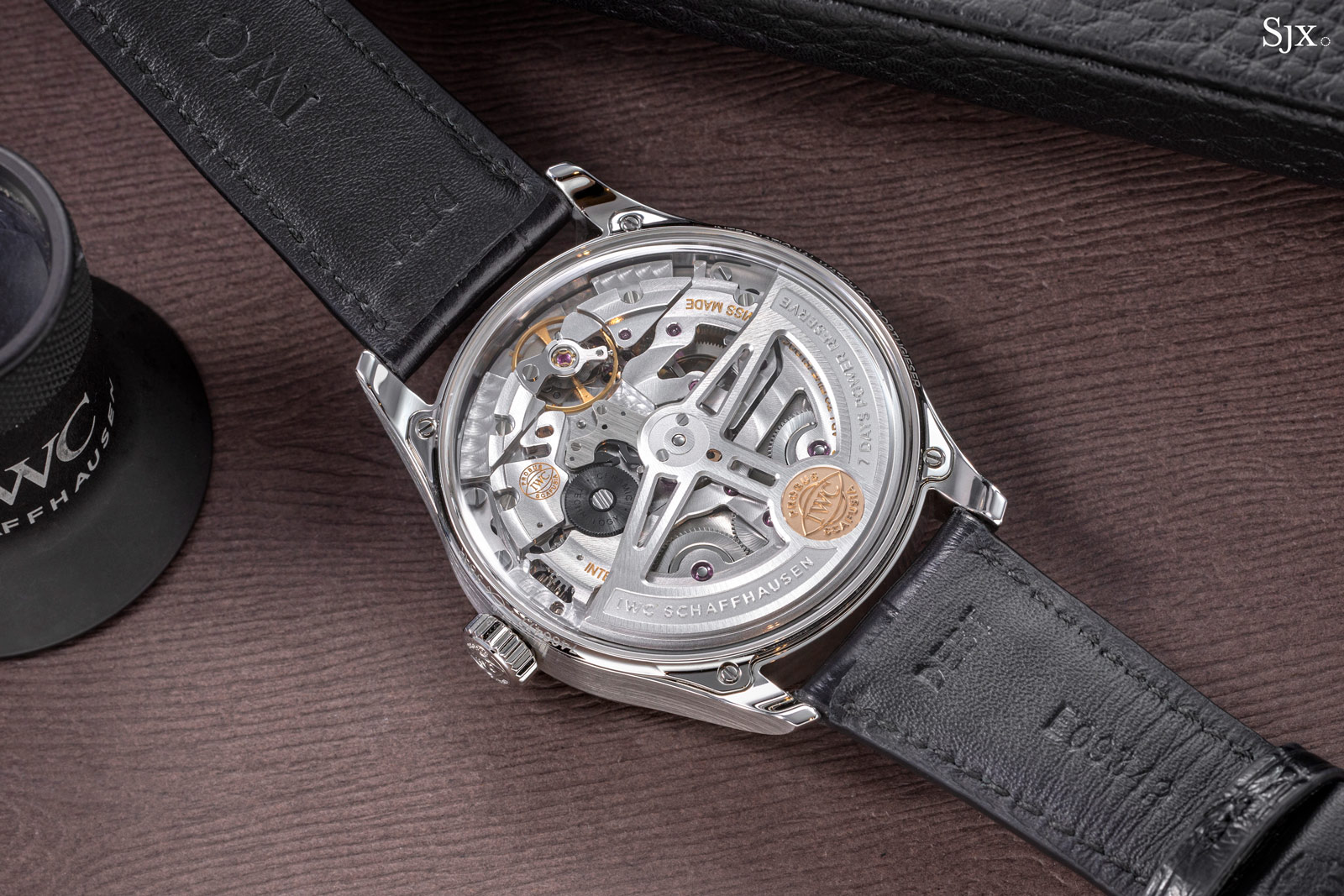
The cal. 52011
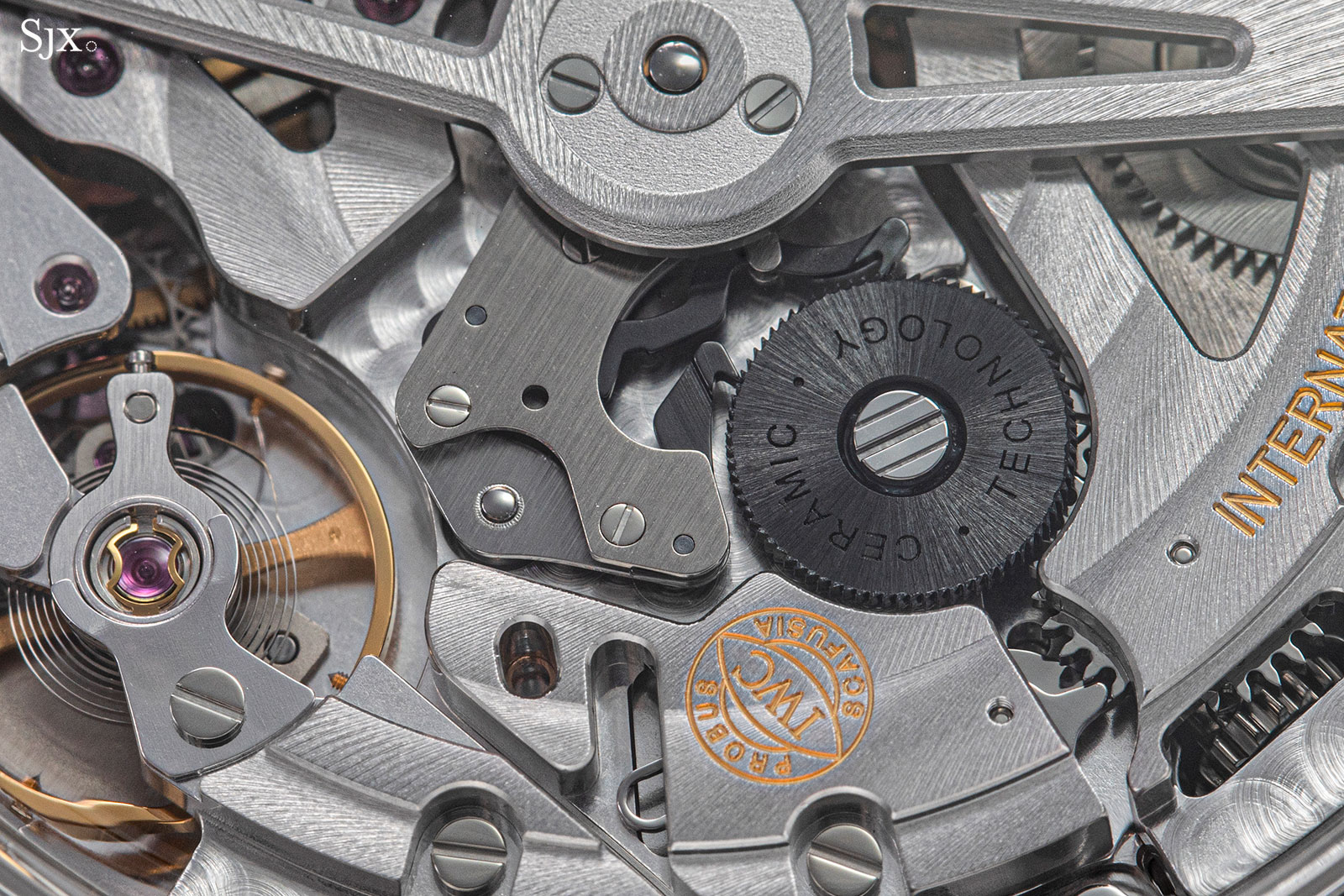
The redesigned Pellaton mechanism with its characteristic double pawls, now entirely in wear-resistant ceramic
The 52000 family addressed all of its predecessor’s shortcomings. It was conceived with the goal of stable timekeeping over a week, which explains many of its features.
The most obvious differences between the two generations are the barrels – two in the 52000 and just one in the cal. 5000 – and the balance wheel that is noticeably smaller in the 52000 family. The twin barrels running in parallel deliver more consistent torque over a week, while the smaller balance wheel requires less energy to run.
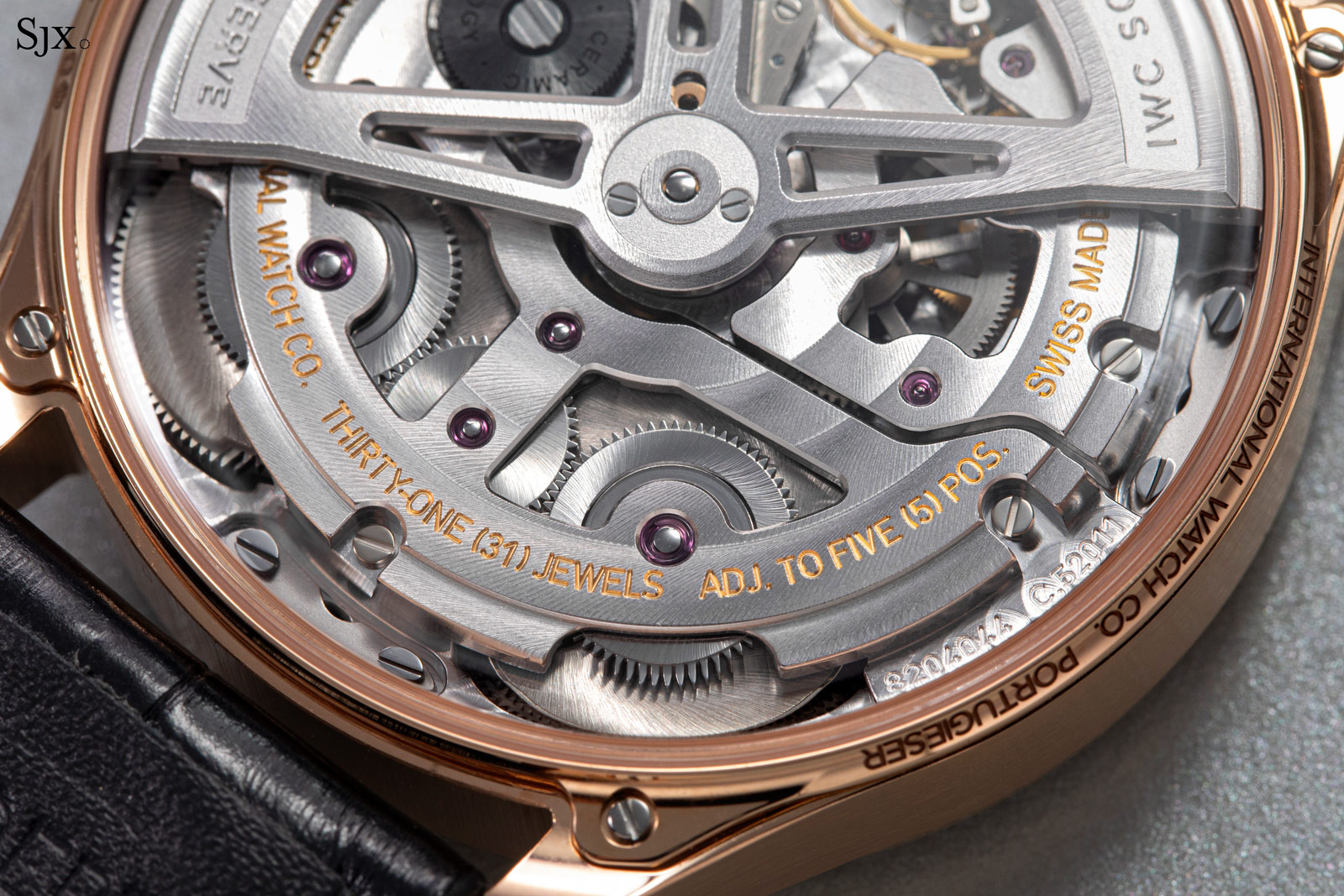
The twin barrels are visible under the open-worked barrel bridge
The cal. 52011 in the new Portugieser is essentially identical to that in the earlier model, but with an upgraded escapement that’s more resistant to magnetism according to IWC. Though IWC didn’t specify the magnetism resistance, it is likely to be modest given that the balance is still attached to a conventional alloy hairspring.
The brand hasn’t revealed much about the escapement, but a visual inspection reveals the escapement parts to be skeletonised. This indicates they are made of a non-ferrous alloy via LIGA or equivalent lithography-moulding technique. LIGA components are now common in watchmaking, but still useful because of their properties, namely lightness and magnetism resistance.
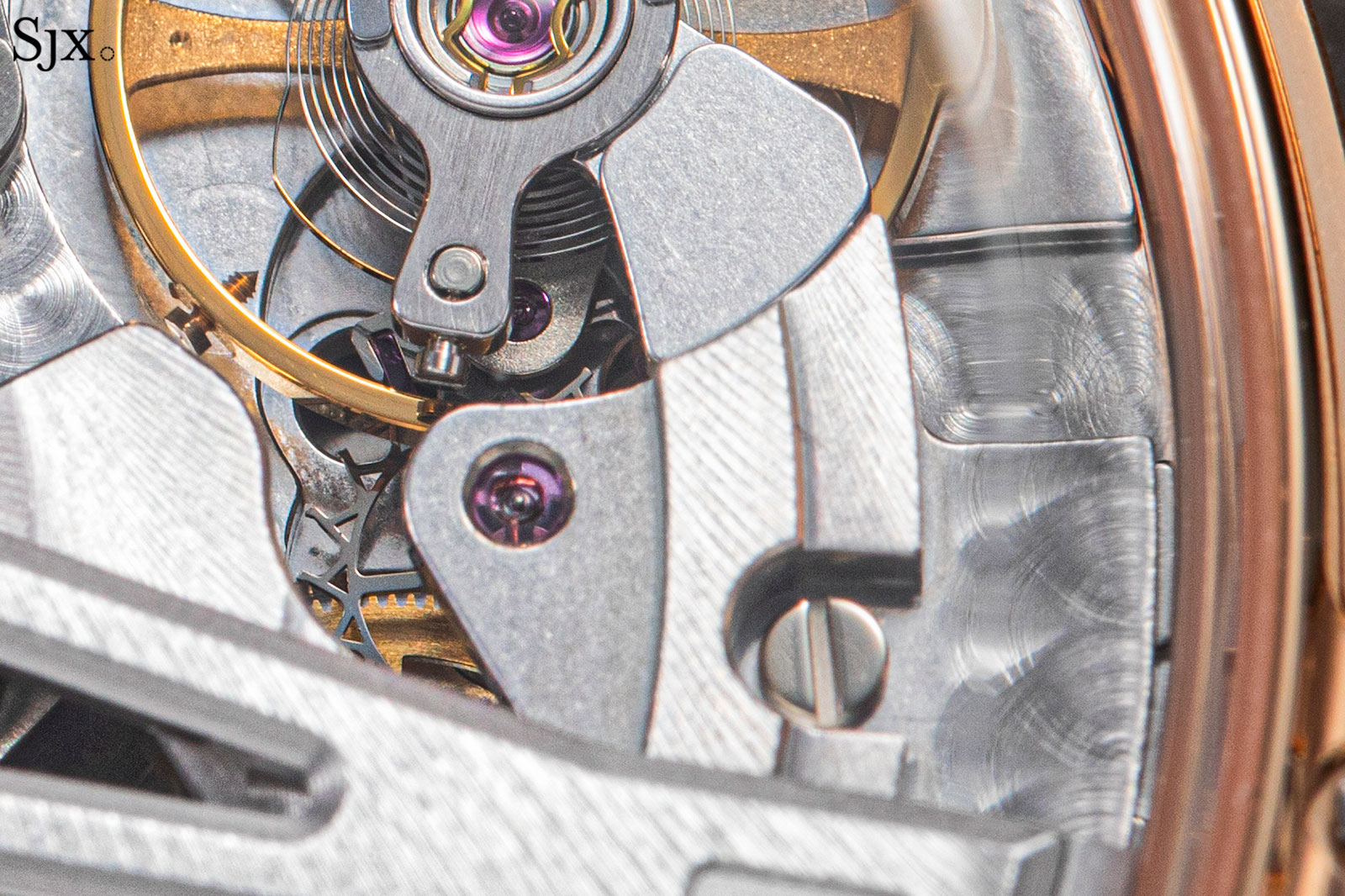
The skeletonised escape wheel and pallet lever are visible just under the balance
Being mostly unchanged from before, the cal. 52011 looks exactly the same. The reworked case back also affords a better view of the movement, as the case back ring is narrower.
The cal. 52011 has an aesthetic that’s typical of IWC’s modern movements – mechanical with exposed moving parts and finished with clean, industrial decoration.
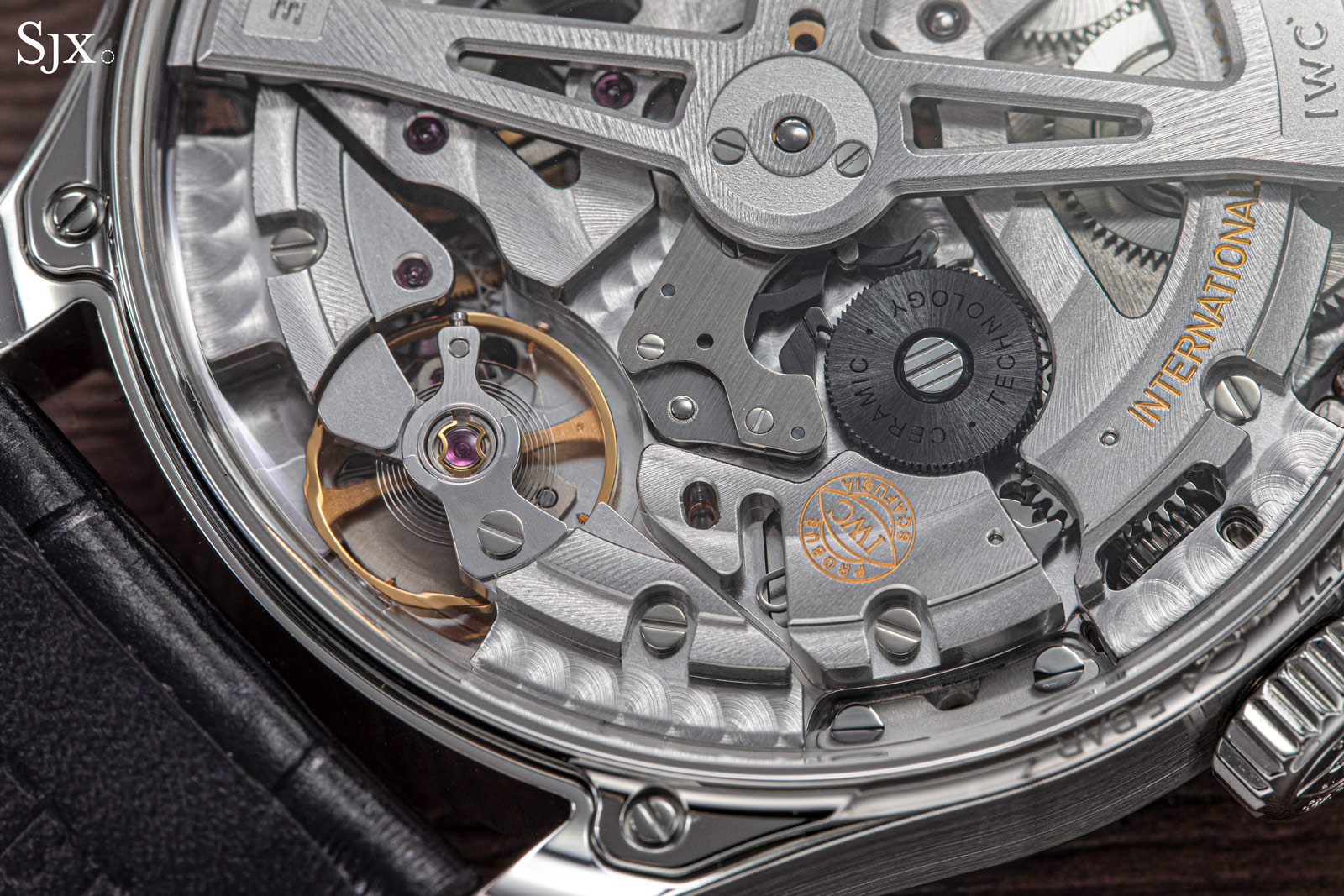
The decoration is attractive and complements the design, though some of the finer details could be done better. A handful of components, for instance, are tumble- or chemically polished, which is basic for a relatively high-end movement.
But overall, the cal. 52011 is a solidly constructed movement that is good looking, and lives up to IWC’s history as a movement engineer.
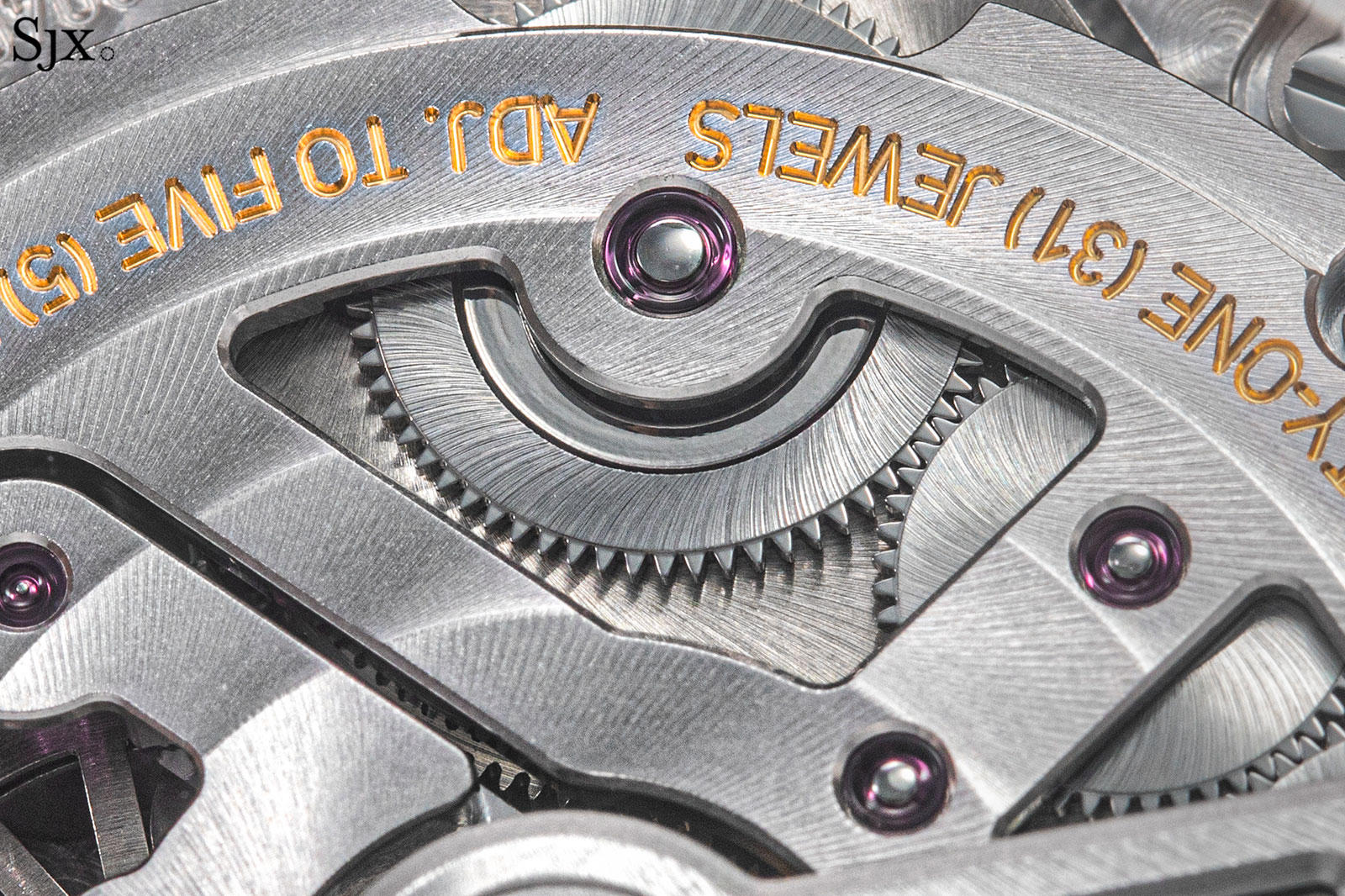
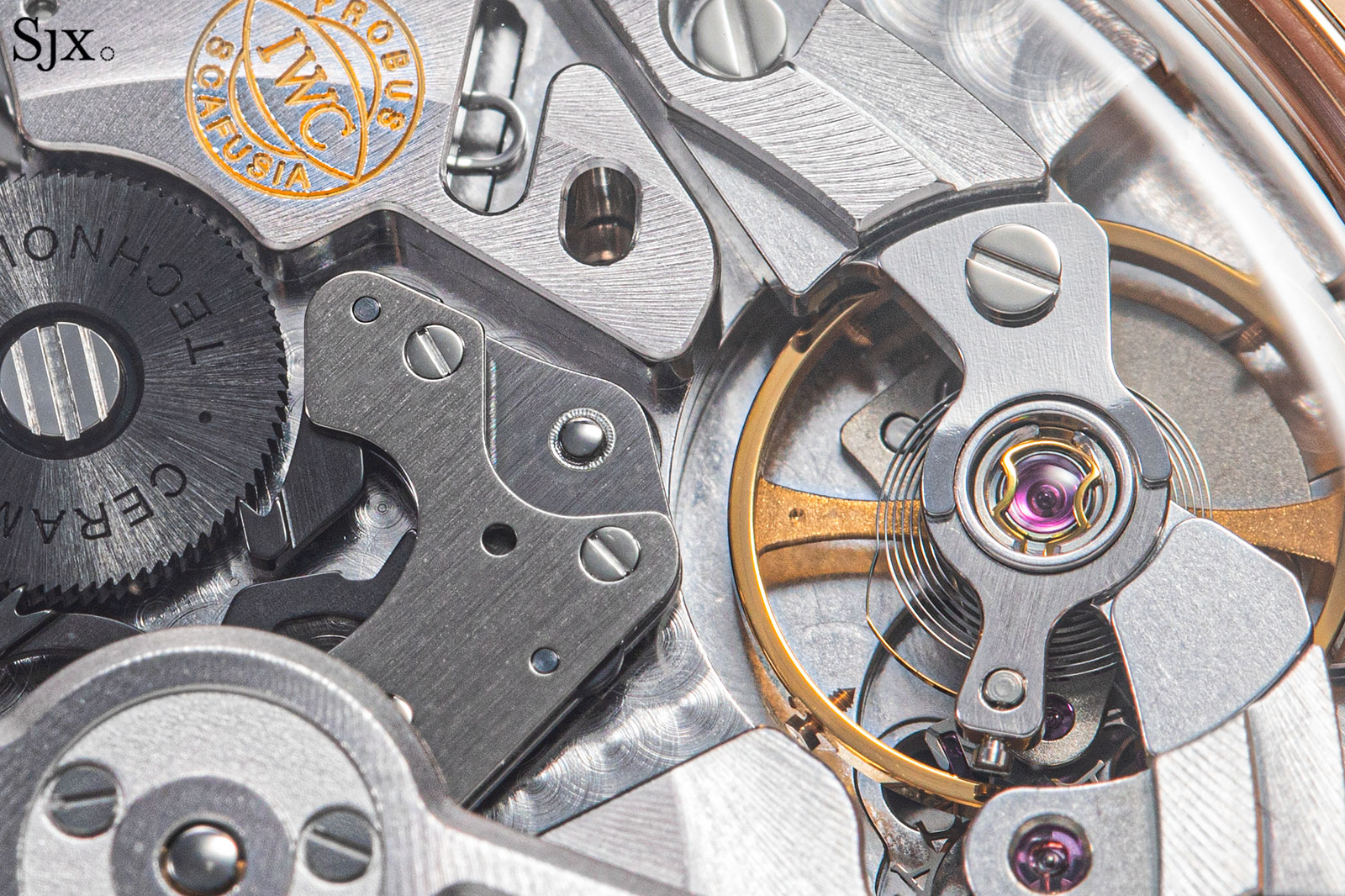
Key facts and price
IWC Portugieser Automatic 42
Ref. IW501708 (white gold/Horizon Blue)
Ref. IW501707 (rose gold/Obsidian)
Ref. IW501705 (steel/Dune)
Ref. IW501701 (steel/Silver Moon)
Ref. IW501704 (steel/blue)
Diameter: 42.4 mm
Height: 13 mm
Material: Steel, white, or rose gold
Crystal: Sapphire
Water resistance: 50 m
Movement: Cal. 52011
Features: Hours, minutes, seconds, date, and power reserve
Frequency: 28,800 beats per hour (4 Hz)
Winding: Automatic
Power reserve: 168 hours, or seven days
Strap: Alligator with folding clasp or steel bracelet
Limited edition: No
Availability: Now at IWC boutiques and retailers
Price: US$13,500 (steel), US$14,500 (steel with bracelet), US$26,700 (rose gold), or US$27,800 (white gold)
For more, visit IWC.com.
Back to top.

